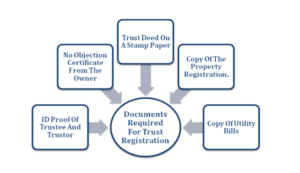GST Registration for Small Businesses: New Guidelines & How GST Affects Small Businesses
The Goods and Services Tax (GST) helps small businesses by replacing the old and complicated tax systems used by the central and state governments with a simple, unified tax system.
GST for Small Business
If your small business sells goods and has an annual turnover of over Rs 40 lakh, you must register for GST. In certain states like Arunachal Pradesh, Manipur, Meghalaya, Mizoram, Nagaland, Puducherry, Sikkim, Telangana, Tripura, and Uttarakhand, the turnover limit for GST registration is Rs 20 lakh.
For businesses in the services sector, GST registration is mandatory if the turnover exceeds Rs 20 lakh. In states like Manipur, Mizoram, Nagaland, and Tripura, the turnover limit for GST registration as a service provider is Rs 10 lakh.
A GST composition scheme is available for small businesses in India. This scheme allows businesses with a turnover up to Rs 1.5 crore per year to pay a lower tax rate.
How GST Helps Startups and Small Businesses:
Tax credit on purchases
Many startups in India are in the service industry. Before GST, they had to collect and pay service tax to the government. A major issue was that they couldn’t use the VAT they paid on business purchases to reduce their service tax liability.
Under GST, startups can now offset the tax paid on purchases (like office supplies) against the tax they collect on their sales.
Pre-GST Example of VAT:
A startup buys office supplies worth Rs 50,000 and pays 5% VAT on them. It then provides a service to another company for Rs 80,000 and collects 15% service tax. Let’s look at the taxes the startup would need to pay without being able to adjust the VAT and service tax:
- Example of Tax Credit on Purchases After GST
A startup buys office supplies for Rs 50,000 with 12% GST and provides a service to another company for Rs 80,000 with 18% GST. Here’s how the startup can claim tax credit on the GST paid for the purchases after GST was introduced:
The Impact of GST on Small Businesses & Startups
1. Simplifying Logistics for Small Businesses
Logistics means moving goods from one place to another. Before GST, businesses had to deal with complicated taxes, multiple warehouses, and delays. GST has helped fix these problems.
No need for multiple warehouses GST has made it easier for startups by removing the need to have warehouses in different states. There’s no longer any tax when goods move between states. This has allowed businesses to combine their warehouses, save on storage costs, and reduce the expenses of managing inventory.
No more check posts, tolls, and border checks GST has removed the need for check posts, tolls, and border inspections that used to slow down the movement of goods and lead to corruption. As a result, goods move faster, transportation costs are lower, and businesses run more smoothly, improving customer satisfaction. GST also allows online businesses to move goods freely across states without facing any barriers.
Tax Burden for Manufacturing Startups
Previously, manufacturing businesses only had to pay excise duty if their turnover was over Rs 1.50 crore. But with the introduction of GST, this limit has been reduced to Rs 20 lakh, increasing the tax burden for many new manufacturing startups. This change has made it harder for startups as they need to adapt to the new tax system and follow the GST rules.
Advantages of GST for Startups
- GST reduces the effect of multiple taxes, as it replaces various taxes at different stages of production and distribution.
- It improves logistics and transportation.
- GST makes domestic manufacturers more competitive and efficient by creating a fair playing field and reducing the burden of compliance.
Challenges for Startups
- Startups need more working capital since they must pay GST on inputs upfront and later claim the input tax credit.
- The cost of compliance has increased, as startups must file monthly returns and keep detailed transaction records.
- Many small and medium businesses lack clarity and awareness about GST rules and procedures.
Lower Compliance Costs for Businesses
One of the main benefits of GST is that it combines many different taxes into one system, making things simpler for businesses. This is especially helpful for startups and small businesses, which often have to deal with different tax rules and rates in different states or industries. By reducing these complexities, GST allows new businesses to focus more on their main work and growth.
Startups and small businesses no longer need to deal with multiple tax departments. Filing tax returns and claiming tax credits is now easier. This also helps reduce the chances of tax fraud and corruption, making the tax system more transparent and reliable.
However, businesses may still find it challenging to understand GST rules, such as how to classify goods/services, calculate taxes, and file returns. It takes time to learn, but as businesses get used to GST, it becomes easier to follow.
Easy Business Setup with One Registration
One of the benefits of GST is simplified registration. Businesses can now register with a single authority, so they no longer need to register in each state. This makes it easier for startups to operate across the country with just one registration number and tax return. The single registration system reduces confusion, saves time, and cuts costs, helping startups reach more customers in the wider market.
Simple Process for GST Registration and Filing Tax Returns
GST registration and filing tax returns are done online, which makes the process quick and easy. If you have all the necessary documents, getting your registration number is just a few clicks away.
Financial Benefits for Startups
Startups that may have limited funds can benefit from GST in many ways. With higher registration thresholds, tax credits on purchases, and simplified processes, GST provides significant relief to smaller businesses in India.
GST has made things easier for startups by simplifying the tax process.
Here’s how:
Startups can now register, file returns, and pay taxes online under GST, which makes everything more straightforward and reduces the need to deal with different tax authorities and rates. Another advantage is that GST lets startups claim back the tax paid on their purchases, lowering their tax expenses and improving cash flow. Plus, it removes the need for multiple registrations, allowing businesses to operate in different states with just one GST number. This makes it easier for startups to grow and attract new customers. Recently, in a GST Council meeting, small businesses got a break as late fees for filing GSTR-1 and GSTR-3B were waived.
Penalties and Consequences for Breaking the New GST Rules
| Type of offence | Amount of penalty |
| Penalty for not registering under GST | Penalty 10% of the tax due or Rs 10,000 whichever is higher |
| Penalty for not issuing invoices | |
| Penalty for not filing GST returns | |
| Penalty for committing a fraud | |
| Penalty for delay in filing GST returns | Late fee is Rs 100 per day under the CGST Act & Rs 100 under the SGST Act. So, a total penalty of Rs 200/day will apply up to a maximum of Rs 5,000. |
| Penalty for opting for composition scheme even though the business is not eligible | In case of fraud (Section 74), a penalty of 100% of the tax due or Rs 10,000 whichever is higher will applyIn case of no fraud, a penalty of 10% of the tax due or Rs 10,000 whichever is higher will apply |
| GST rate “}”>Penalty for wrongfully charging a higher GST rate | Penalty 10% of the tax due or Rs 10,000, whichever is higher (if the additional GST collected is not submitted with the govt) |
| Penalty for wrongfully charging lower GST rate | Interest @18% p.a. will be applicable on the GST shortfall |
| Penalty for incorrect filing of GST returns | |
| Penalty for incorrect invoicing | Penalty of Rs 25,000 |
| Penalty for incorrect type of GST charged (IGST instead of CGST/SGST) | No penalty will be charged in this case. Businesses can pay the correct GST and get a refund of the wrong GST paid earlier |
How can startups simplify their invoicing process?
Startups can make invoicing much easier with GST Invoices, a smart tool that helps you create GST-compliant invoices in just minutes.
Here’s how it works in three simple steps:
- Create the invoice
Use the platform to quickly create multiple invoices. Just fill in the details of the goods or services, their value, and the applicable GST. Click the “Create Invoice” button, and your GST-compliant invoice is ready. - Notify your customer
Once the invoice is generated, share its unique link with your customers via SMS or email. - Receive payments
Your customers can use the link to make payments instantly. They can also download the invoice for their records. You can even enable partial payments on an invoice to ensure smooth business operations. Contact us.
Need Help?
FAQs
Is GST required for small businesses?
Yes, small businesses need to register for GST if their yearly turnover is above Rs. 40 lakhs for goods or Rs. 20 lakhs for services.
Are startups exempted from GST?
Startups do not need to register for GST if their annual turnover is below Rs. 40 lakhs for goods or Rs. 20 lakhs for services. They are also exempt if they deal only in goods or services that are GST-free.
Is GST mandatory for startups?
Yes, startups must register for GST if their turnover crosses the threshold limit, if they make inter-state sales, sell through e-commerce, or fall under the reverse charge system.
How do startups get tax exemptions?
Startups can qualify for tax exemptions under the Startup India initiative if they are recognized by DPIIT and meet the eligibility requirements. Benefits include a 3-year tax holiday, no tax on long-term capital gains, and exemption from tax on certain investments.
What is the GST turnover limit for small businesses?
Businesses with a yearly turnover of over Rs. 40 lakhs for goods or Rs. 20 lakhs for services must register for GST. If the turnover is below these limits, GST registration is not mandatory but can be done voluntarily under the GST Act, 2017.
Table of Contents
Toggle



